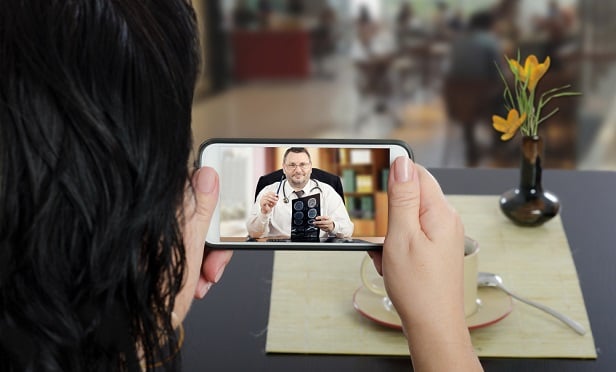 Mental health services were among the top needs, with 40% of consumers saying they would be very likely to receive care for mental and behavioral health virtually. (Photo: Shutterstock)
Mental health services were among the top needs, with 40% of consumers saying they would be very likely to receive care for mental and behavioral health virtually. (Photo: Shutterstock)
Health care consumers want more accessible and technology-driven health care, with 32% more likely to communicate to their doctors via telehealth, up from 19% in 2019, according to a CVS Health study released this week.
The 2020 Path to Better Health Study surveyed 1,000 consumers and 400 providers through mid-March, just as the COVID-19 pandemic hit. Kathleen Biesecker, senior communications partner at CVS Health, said the greater acceptance of telehealth was "exponential."
"The need to do things at a distance, whether it's prescription delivery or talking to a provider on the phone or Apple watch, those kinds of things, the needs continue to grow," she said. "Clearly, that is a pathway to getting care that has been growing and has accelerated dramatically by the COVID pandemic."
The survey also found that 48% would be more likely to communicate through digital messaging, up slightly from 41% in 2019, and 29% through Skype or FaceTime, up from 20% in 2019.
Mental health services were among the top needs, with 40% of consumers saying they would be very likely to receive care for mental and behavioral health virtually. That is especially true for those between the ages of 18 and 50.
"The stigma around talking about mental health issues with providers is moving in a positive direction," Biesecker said. "That conversation is becoming part of your whole body health."
Additionally, 40% of health care providers said telemedicine was very valuable for communicating with patients, up from 22% last year.
The annual survey, begun in 2018, focuses on both consumers and providers of health care. This year's survey found that 92% of consumers said it was very or somewhat important that health care be convenient.
Although hard to predict, Biesecker said the COVID-19 pandemic would largely influence next year's survey.
"It will be fully influenced by this year we've been through, which is unlike anything else," she said. "I would imagine we'll see that rise of telehealth, that will be really impactful, and the mental health findings, again, will be important. Those two storylines will continue through to be really important for the survey itself."
Complete your profile to continue reading and get FREE access to BenefitsPRO, part of your ALM digital membership.
Your access to unlimited BenefitsPRO content isn’t changing.
Once you are an ALM digital member, you’ll receive:
- Breaking benefits news and analysis, on-site and via our newsletters and custom alerts
- Educational webcasts, white papers, and ebooks from industry thought leaders
- Critical converage of the property casualty insurance and financial advisory markets on our other ALM sites, PropertyCasualty360 and ThinkAdvisor
Already have an account? Sign In Now
© 2024 ALM Global, LLC, All Rights Reserved. Request academic re-use from www.copyright.com. All other uses, submit a request to [email protected]. For more information visit Asset & Logo Licensing.








